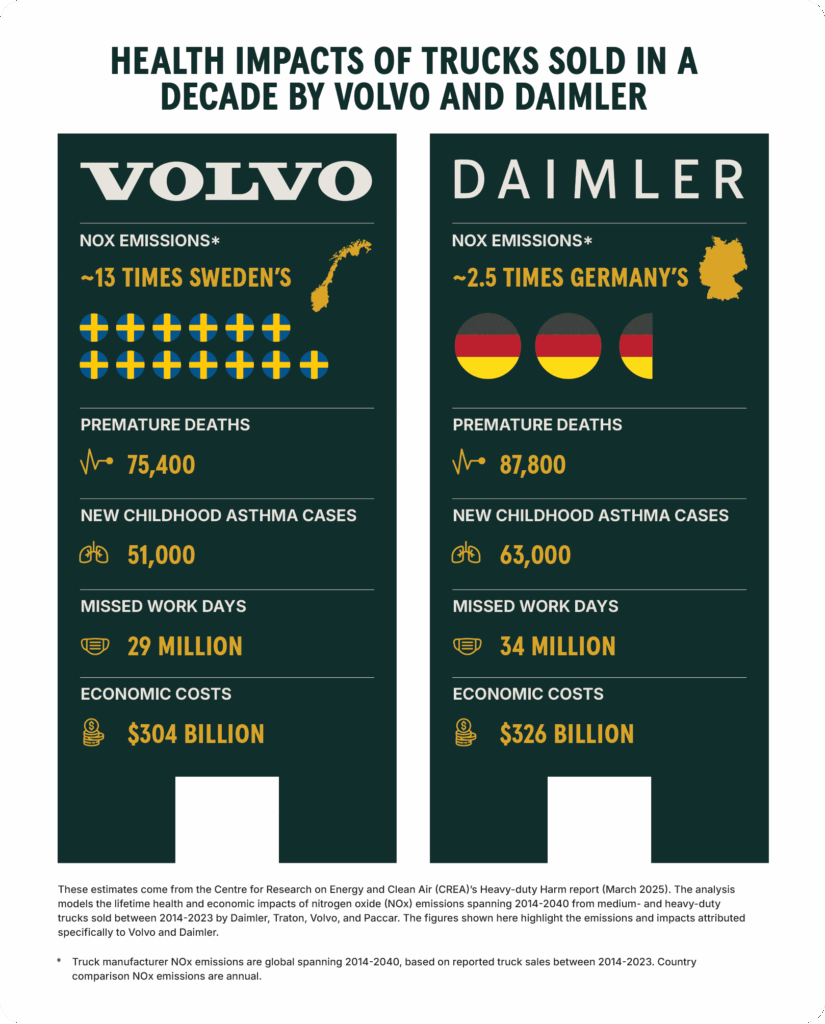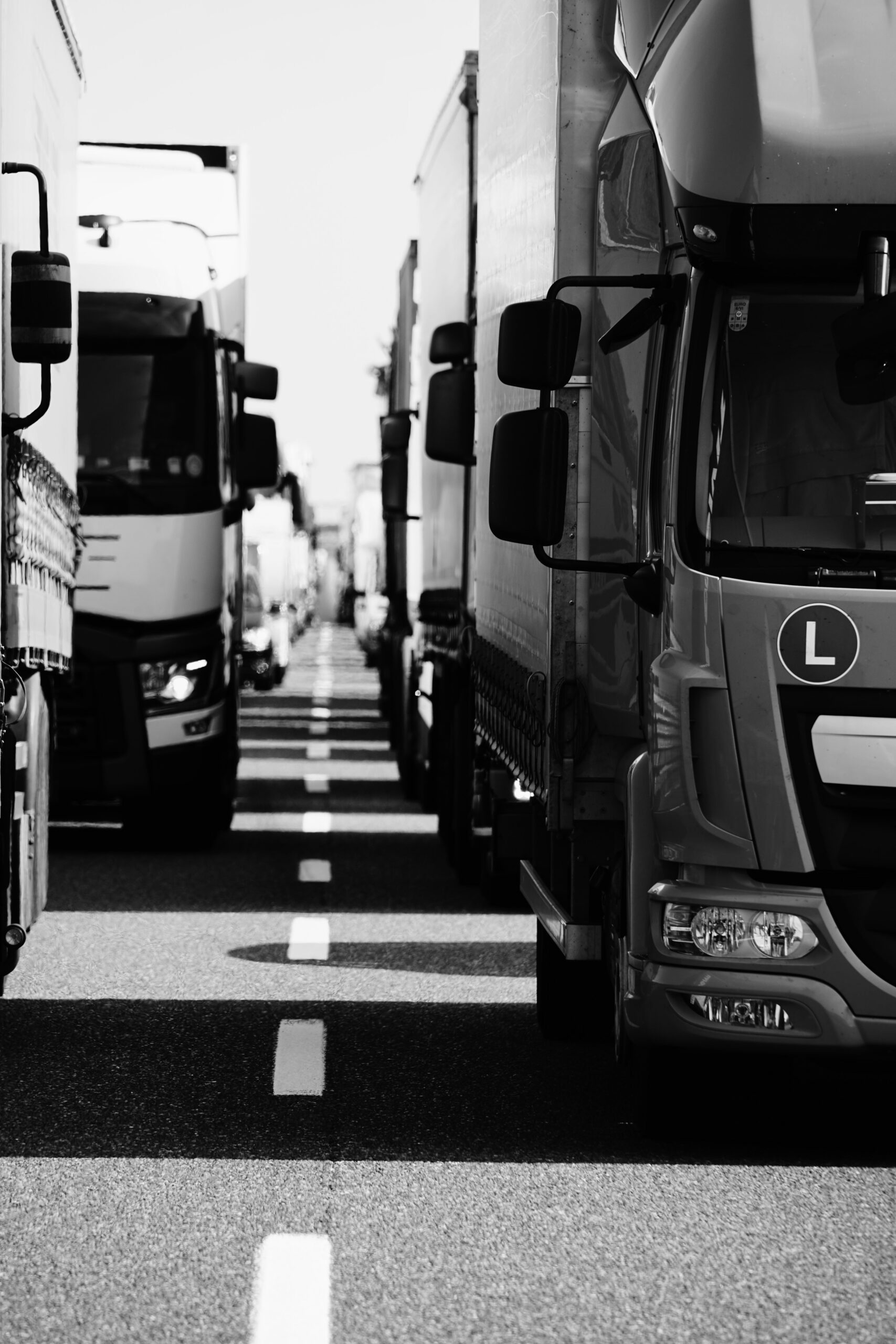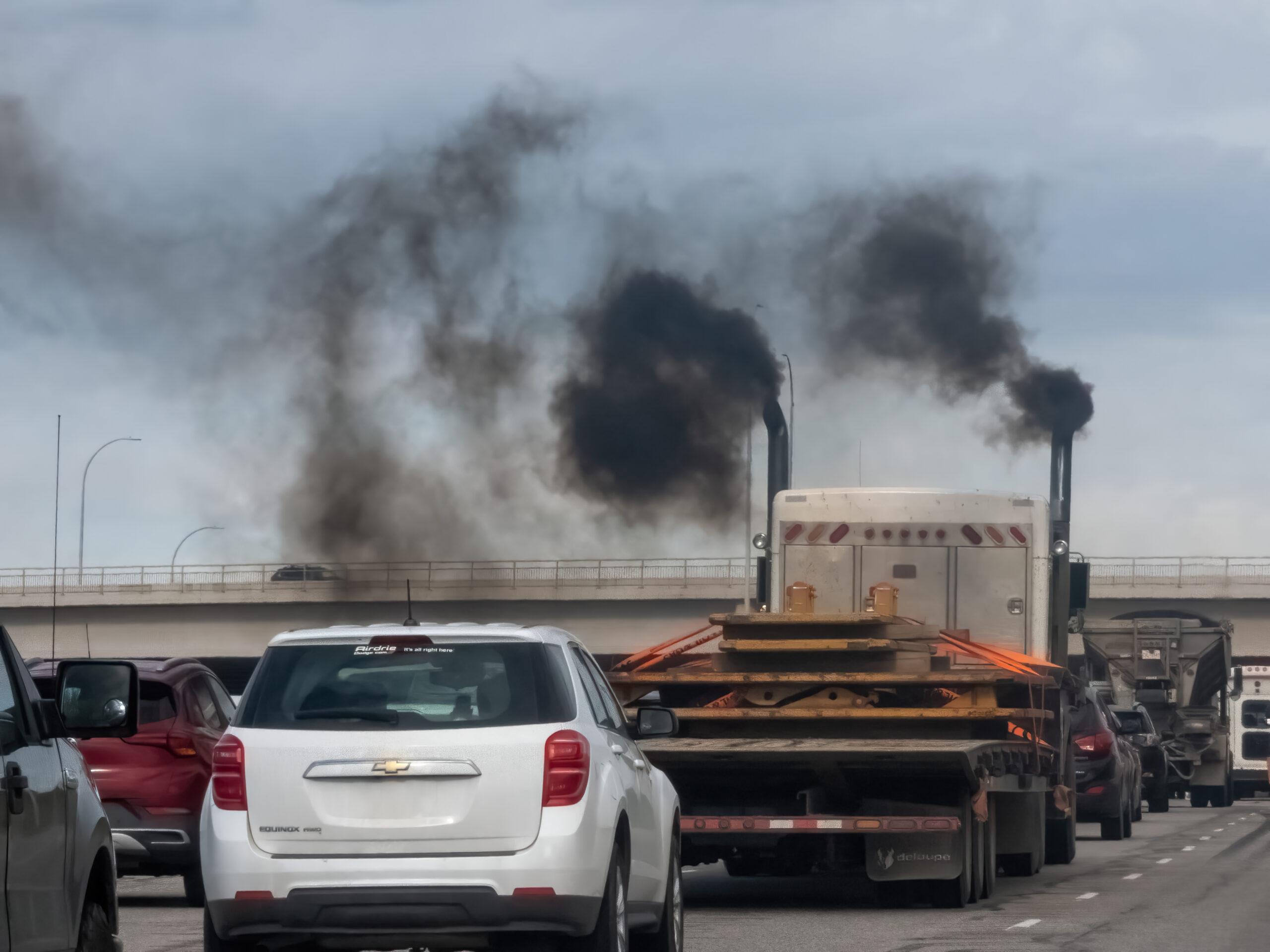Volvo and Daimler are among the manufacturers highlighted in this report, alongside Traton and Paccar. The report links the trucks these companies have sold in the past 10 years to thousands of cases of diabetes, childhood asthma, and other life-threatening diseases worldwide. These findings make it clear that the choices made by truck manufacturers have far-reaching consequences for public health and the environment, highlighting the urgent need for leadership and accountability from the industry’s biggest players.
Diesel trucks emit nitrogen oxides (NOx), gases that pollute the air and penetrate our lungs, triggering asthma attacks and breathing problems. People who live near highways and industrial areas breathe these pollutants daily, while the damage spreads silently through their neighborhoods and beyond.
Medium- and heavy-duty trucks make up only 3% of vehicles on the road, but produce 50% of NOx emissions from all sectors combined.
Daimler, Traton, Volvo, and Paccar are responsible for a significant share of global NOx emissions. Together, they account for about 39% of global sales of medium- and heavy-duty vehicles and hold nearly two-thirds of the global heavy-duty truck market. That number rises to more than 85% of the heavy-duty market in EU30, North America, and Latin America.
Trucks sold by these four manufacturers over a 10-year period will emit 6,466 kilotons of nitrogen oxides over their lifetimes—equivalent to 60 times the total human-caused NOx emissions in Sweden each year.
The report estimates that these emissions will lead to catastrophic health impacts.

These numbers are evidence that change can’t wait any longer. Every new diesel truck sold means years of emissions affecting people’s health and lives.
Accelerating the phase-out of diesel trucks and investing in electric alternatives will save lives, protect public health, and reduce the economic burden caused by diesel pollution.
Volvo and Daimler hold the key to change
As two of the world’s largest truck manufacturers—and a significant source of this health crisis—Volvo and Daimler must take the lead and push to deliver clean vehicles. Change needs leaders, and these companies are in a unique position to drive progress thanks to their immense global influence, massive profits, and the technology to create real change.
Volvo claims to be an “electric pioneer,” with a 50% electric sales target by 2030, while Daimler positions itself as the industry expert on zero-emission transport. But their actions tell a different story. Electric vehicles represent just 1.7% of Volvo’s total annual sales and 0.88% of Daimler’s yearly total.
Meanwhile, Volvo invested €1B million in a new diesel truck plant in Mexico, while Daimler delivered €1.5 billion in dividends and €2 billion in share buybacks; money that could fuel zero-emission investments.
The cost of the transition is not a valid excuse, either. Diesel-related health costs—more than $1.4 trillion globally—highlight the urgent need to invest in truck electrification. According to the report, it would cost an estimated $66 billion to build charging infrastructure for 1.4 million electric trucks by 2032 in the U.S., and €40 billion to support large-scale electrification infrastructure in Europe by 2040.
The road ahead: prioritizing electrification
The CREA report outlines three critical recommendations that align with the demands Idle Giants has been making to Volvo and Daimler:
- Accelerated electrification
The report calls for “robust policy and regulation” alongside industry action to rapidly transition away from diesel trucks. To fully commit to electrification, Volvo and Daimler’s investments must align with their lobbying efforts. These companies need to support strong policies that accelerate the transition by phasing out diesel and creating market certainty for a future of electric trucks in every country where they operate.
- Equitable global access
CREA emphasizes the need for electric trucks to “reach beyond wealthy markets” and serve lower-income regions and smaller operators. This mirrors our call for a just transition that works for everyone. Small operators—who make up half of the global trucking industry—require financial solutions to make electric trucks affordable. Workers need retraining opportunities and protection of their rights. Additionally, electrification should prioritize communities that bear the highest pollution burdens, delivering immediate health benefits where they are most needed.
- Avoiding false solutions
The report warns against technologies like “LNG, biofuels, and hydrogen combustion engines” that “perpetuate harmful emissions while diverting critical resources.” In particular, Volvo’s platform includes a range of technologies that present concerning solutions, potentially perpetuating health impacts from truck pollution. Leading manufacturers must instead direct their resources toward building the infrastructure needed for zero-emission trucking—from charging networks to renewable energy systems.
Despite their outsized contribution to global air pollution and billion-dollar health impacts, Volvo and Daimler have been dragging their feet at a time when a strong push for change from these industry giants is needed. Their slow progress has real costs—to economies, the environment, and human lives. It’s time for these companies to clean up their act and transform the trucking industry—for good.



